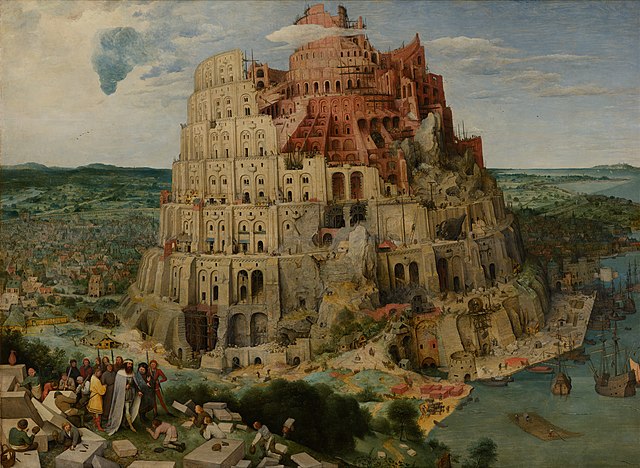In his often-quoted passage in the introductory lectures on psychoanalysis, Freud speaks of two significant narcissistic blows to humanity: the realization that one is a tiny dot in an inconceivably vast planetary system, let alone being the center of the world or the universe, and learning that humans evolved from chimpanzees. And in the continuation of the passage, -not very humbly- he suggests that the third and more painful blow to human arrogance comes from his own theory. The existence of the unconscious reveals that the ego is not even master in its own house(1).
One could argue that arrogance is a characteristic unique to the human species. After all, aren’t religions that suggest the universe was created for humanity a display of self-importance? Can’t we find traces of our pride in how we, among the many known species of humans, named ourselves “homo sapiens,” meaning wise humans? Or isn’t our insatiable greed-fueled consumption of the Earth’s resources a result of our arrogance as well?
 The Tower or Babel, 1563, Pieter Bruegel the Elder
The Tower or Babel, 1563, Pieter Bruegel the Elder
What could be the reason for the human species to be so arrogant as a species? In his famous book where he narrates the short history of the human species, Harari writes the following:
humankind ascended to the top so quickly that the ecosystem was not given time to adjust. Moreover, humans themselves failed to adjust. Most top predators of the planet are majestic creatures. Millions of years of dominion have filled them with self-confidence. Sapiens by contrast is more like a banana republic dictator. Having so recently been one of the underdogs of the savannah, we are full of fears and anxieties over our position, which makes us doubly cruel and dangerous. Many historical calamities, from deadly wars to ecological catastrophes, have resulted from this over-hasty jump.”
Harari’s succinct and insightful, which provides an evolutionary explanation for human arrogance, also highlights the complex relationship between arrogance and power. Arrogance can be seen as connected to the inability to fully internalize and reconcile with the state of being powerful. In the literature, two types of pride are often described: authentic pride, associated with a person feeling good, productive, and self-assured, tied to socially accepted traits like conformity and a sense of responsibility; and hubristic pride, characterized by self-centeredness, audacity, aggression, and low self-esteem.
The aspiration for power and the need to establish connections are among the most significant factors shaping human social life. Karen Horney, in her book “Our Inner Conflicts: A Constructive Theory of Neurosis,” elucidates the ‘moving against’ (power) and ‘moving toward’ (establishing bonds) dilemma as vital issues for individuals in society to resolve. Arrogance, stems from the overwhelming desire to ‘move against,’ emphasizing the quest for superiority over others, the yearning for dominance, or in simpler terms, the absence of a tendency to ‘move toward.’ In arrogance, the underlying impulses are not directed at establishing connections but rather at dismantling them. Bion, in his article “On Arrogance” distinguishes between pride and arrogance based on two fundamental instincts, offering the following interpretation: “In the personality where the life instincts predominate, pride becomes self-respect, while, when the death instincts predominate, it becomes arrogance.”
When we define arrogance as a lack of desire to establish connections, we can find another explanation for human arrogance in Harari’s same work. Harari writes as follows:
Over the past 10,000 years, Homo sapiens has grown so accustomed to being the only human species that it’s hard for us to conceive of any other possibility. Our lack of brothers and sisters makes it easier to imagine that we are the epitome of creation, and that a chasm separates us from the rest of the animal kingdom. When Charles Darwin indicated that Homo sapiens was just another kind of animal, people were outraged. Even today many refuse to believe it. Had the Neanderthals survived, would we still imagine ourselves to be a creature apart? Perhaps this is exactly why our ancestors wiped out the Neanderthals. They were too familiar to ignore, but too different to tolerate.”
Intolerance towards the different and the desire to establish superiority over those who are similar are fundamental issues of humanity. We can’t get along with our siblings because they are our closest competitors. But as we eliminate our siblings, we also become more isolated. Perhaps this dynamic will determine the fate of humanity. Will we be able to find ways to coexist and live in harmony with other sibling organisms without seeking to assert our superiority by accepting their differences, or not?
As our arrogance continues to dominate our relationship with the world, it becomes increasingly difficult to remain hopeful about the future. This is because arrogance also has a close relationship with foolishness. The arrogant, who excessively believes in himself and denies his shortcomings is bound to make mistakes. Like dictators who, dizzy with their power, lose their control before they realize it, humankind, by excessively relying on its ability to rule the world, jeopardizes its future as it increases the dosage of its cruelty. Perhaps with every achievement that makes us feel intelligent, powerful, and an important species, we should frequently remind ourselves of the truth pointed out by Jonas Salk:
If all the insects were to disappear from the earth, within 50 years all life on earth would end. If all human beings disappeared from the earth, within 50 years all forms of life would flourish.
References
- Freud, S. (1915-1917). Introductory Lectures on Psychoanalysis. The Standard Edition of the Complete Psychological Works of Sigmund Freud.
- Harari, Y. N. (2015). Sapiens: A Brief History of Humankind
- Horney, K. (1945). Our Inner Conflicts, W.W. Norton & Company Inc., New York.
- Bion, W. R. (2013). On Arrogance, The Psychoanalytic Quarterly, Vol. LXXXII, No:2.